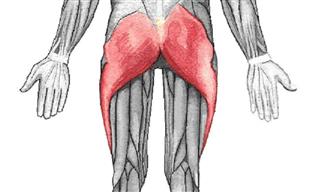
So what exactly is gum disease? Simply put, it’s a contagious bacterial infection that can wreak havoc on your health. In your mouth, it can destroy your gums, erode your jawbone, and cause tooth loss (gum disease is the main reason teeth fall out).
The picture isn’t any better when it comes to the rest of your body. Here’s what happens according to Mark Weiser, DDS, a practicing dentist in Santa Barbara, Calif: “There are two fronts to bleeding gums. The plaque, which is a biofilm of bacteria and its waste products, first creates the irritation to the gum tissue. Then there’s the body’s reaction to that wounding, the inflammatory response. Put those two factors together and you’ve got inflamed, bleeding gums. The longer you have inflammation, the more at risk you are for all kinds of systemic illnesses, everything from allergies to cancers.
Gum disease is really common. According to the American Academy of Periodontology, up to 80% of the adult population has some form of gum disease, while only about 10% are aware of its telltale signs – bleeding gums is one of the middle-to-later symptoms.
The good news? By certain habits, you can significantly decrease your risk of gum disease, and even stop it in its tracks. Below are 6 reasons your gums are bleeding, and what you can do about it.
1. Your Oral Hygiene is Subpar

Inadequate oral hygiene results in visible plaque on the teeth and red swollen gums. Research has shown that healthy gums can become diseased within just 24-36 hours of not brushing or caring for your teeth.
Your best bet is to take care of your teeth, and the following tools can help make your job a lot easier:
• An electric toothbrush: Automatic brushers massage the gums to stimulate blood flow, brings nutrients to the tissue, and removes toxins.
• Anti-bacterial mouth wash and toothpaste: These will significantly reduce the number of bacteria in your mouth.
• Oral probiotic mints: These dissolve in the mouth and help to prevent tooth decay, while whitening teeth along the way.
2. Your Diet is in the Dumps
Eating processed food is just as bad for your teeth as it is for your waistline. Dr. Samaha states that “a diet with at least six to 8 fist-sized servings of fruits and vegetables, along with nutritional supplements of calcium, vitamin D, vitamin C, magnesium, and anti-inflammatories such as fish oil, are all critical building blocks of oral health.” Eating a balanced diet boosts the integrity of your immune system and nourishes the soft tissues, which are most vulnerable in the body.
3. You Haven’t Kicked the Butts
Smokers are at much higher risk of gum disease due to all the toxins in cigarettes, which create inflammation and decrease the body’s immune response. “Once the gums show signs of bleeding, the dangerous bacteria that live between the tooth and the gumline are able to slip through the ulcerated gums and move directly into the bloodstream – this can wreak havoc on every organ in the body, especially the heart and blood vessels,” says Dr. Samaha.
4. You’ve Got an Unbalanced Bite
If you have crooked and crowded teeth as well as grinding and clenching habits, you may have what is known as “bite disease.” Basically, destructive forces are being applied to your teeth and the supporting gum tissue and bone. When you bite too hard in one area, it causes the gum to recede and the bone to begin deteriorating, making a prime spot for gum disease to appear.
5. Your Meds are Meddling
Some medications may interfere with blood flow to tissues or hamper saliva flow, leading to a drier mouth and less protection for the gums. Enlargement or thickening of gum tissue and dry mouth cause gum tissues to be more susceptible to the presence of plaque, increasing gum disease progression. You should get into the habit of asking your doctor or pharmacist if the meds you’re taking could affect your gums or cause a dry mouth.
6. You’ve Been Kissing and Sharing
Gum disease can be transferred from one person to another via saliva, which means drinking from the same cup, sharing utensils, and kissing can increase your risk of gum disease. This is one area where sharing definitely is not caring.
Source: prevention
Images: depositphotos
 Go to BabaMail
Go to BabaMail




























